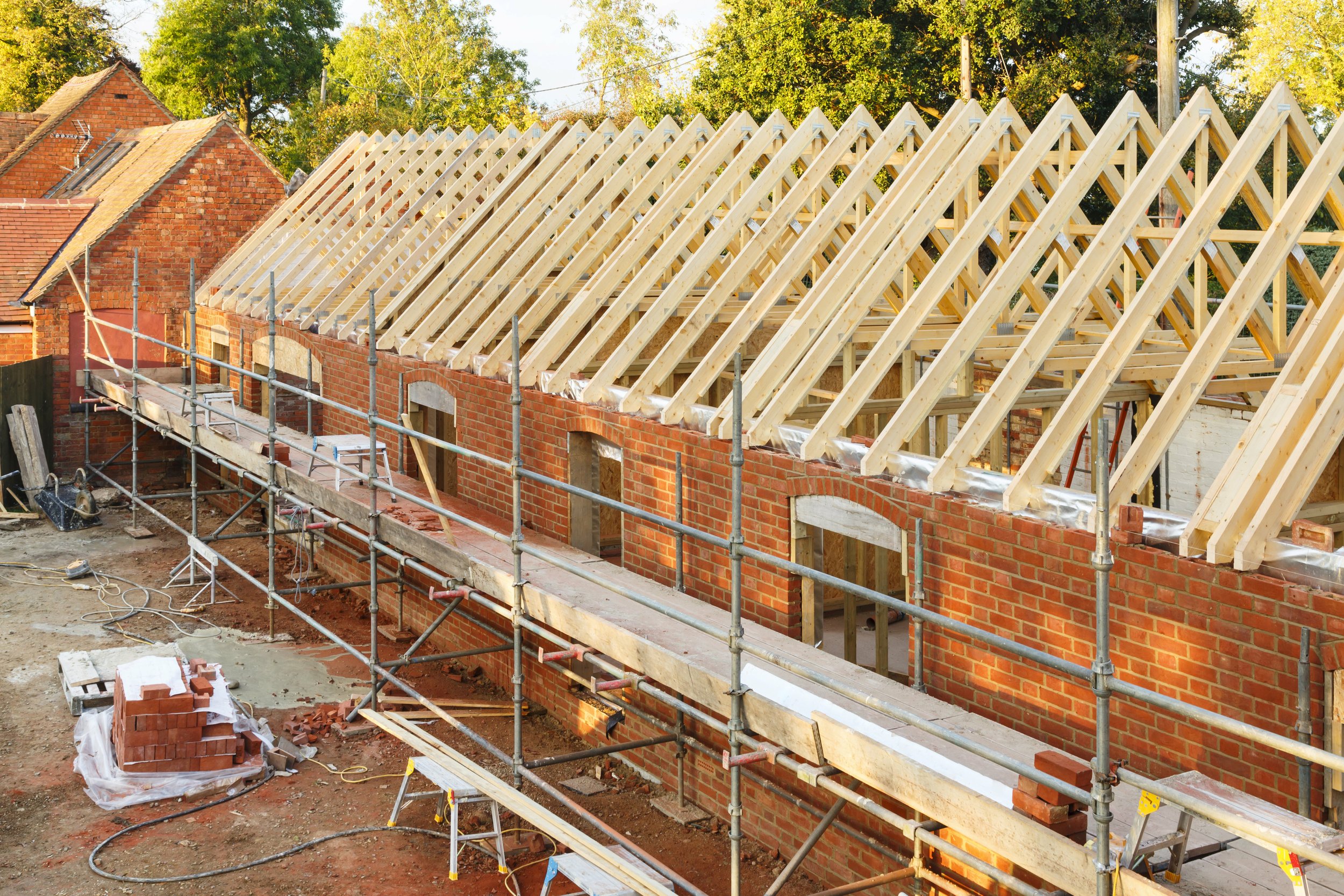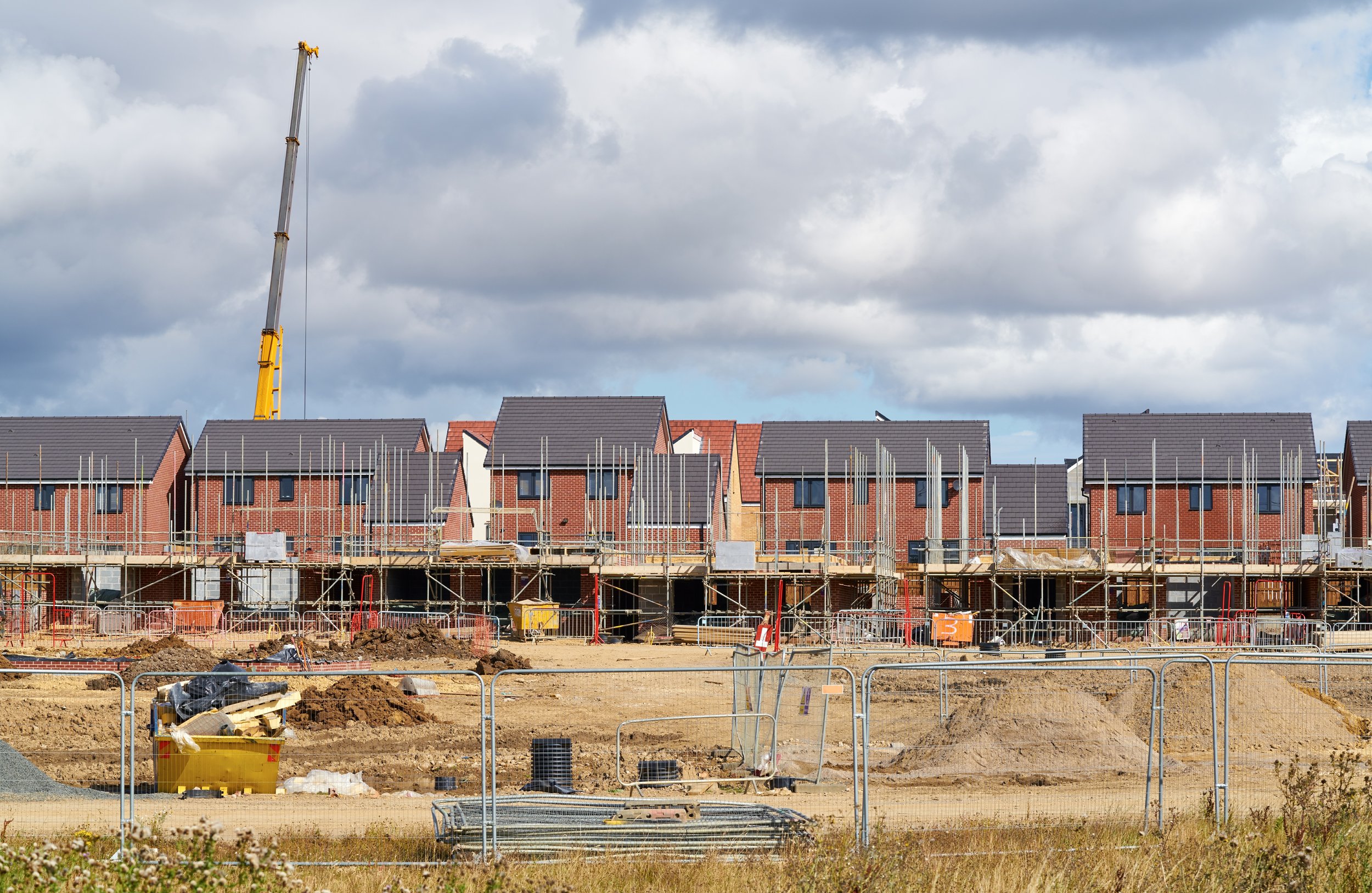Helping SME housebuilders build more through collaboration
This week, Mansell Managing Director Angela Mansell will be in attendance at the Place North West half-day conference, “The role of SME housebuilders in delivering the nation’s housing”. In this companion piece, we’ve taken the crux of Angela’s talking points for the event and fleshed out the details.
-
If we're serious about solving the UK's housing crisis, we’ve got to take a multi-layered approach. Undoubtedly, the big developers, their vast land banks and considerable financial power will have a large role to play in increasing our housing supply. But they’re not going to provide the answer on their own.
SME housebuilders are working on the ground, often in the shadows, and despite their size and constraints, can have a big role to play in increasing the UK’s housing output. Historically, SMEs played a huge role in housing supply. In the 1960s, they contributed up to 40% of annual house building compared to just 12-14% in 2025.
The question is, what can we do here and now to help SMEs deliver more? How can we give them the opportunities they deserve and how can we help them step up and make a difference?
Let’s examine.
The potential of small sites
As has been drummed into everyone’s heads since Labour took power, the government is aiming for 1.5 million new homes over the next five years. A lofty target and difficult by anyone’s measure to reach.
Research from Savills makes it clear that small sites are going to be vital when it comes to hitting the housing target. The big catch is that for smaller developers, these sites often don’t make business sense on their own. If you're a small housebuilder and you’ve got one or two small plots of land, you're probably going to struggle to make the numbers work.
But what if we started grouping these smaller sites together? Suddenly, you've got the economies of scale needed to make things viable. That’s where collaboration comes in.
At the moment, this kind of collaboration just isn’t happening enough. We’ve got developers, landowners, and councils all working in isolation. It's a fragmented, inefficient system that only benefits the big guys.
The solution seems so achingly simple—we need to start working together. We need to connect the dots between all these smaller projects and make them bigger, more attractive packages that SMEs can actually get involved in.
Where’s the partnership model for SME housebuilders?
We talk a lot about partnerships working in the construction industry, but when it comes to small-scale housing developments, it's just not happening. Larger developers and local authorities are starting to get it right on the bigger schemes. But this collaboration isn’t trickling down to smaller outfits.
Arguably, the large developers are the ones with the size, financial reserves and backing to succeed under the current system. With the majority of partnerships working more in the favour of the big boys, it comes across as a ‘win more’ for them and a ‘lose more’ for smaller outfits. Where are the partnerships that can bring SMEs back into the fold?
Councils often own parcels of land that could be developed by SMEs, but they’re not actively bringing those sites forward. Instead, they get pushed to the bottom of the pile, or worse, ignored altogether.
There’s a lack of clarity around how these smaller sites should be developed, who should do it, and how the money should flow. If we want SMEs to take the lead in delivering housing on smaller sites, we need to make these partnerships a priority. Local authorities, developers, and even funders need to start thinking about this from a joined-up perspective. If we could identify and group smaller sites into a pipeline, we could then build the right kind of partnerships, connect the right people, and make these projects work.
Turning the problem of the skills crisis into an opportunity
If you’ve been paying attention to our recent content output, you’ll know we love to shout about the skills crisis and the route out of it. There’s no denying the scale of the problem and it’s now becoming clear that it could have a big effect on our ability to reach the housing target.
The industry is struggling with a shortage of workers, and that’s putting pressure on wages and increasing costs. The solution to that is not just to sit back and complain about the lack of labour. We need to adapt and look for solutions that bypass the need for a massive workforce and fading skills.
As the Managing Director of a contractor specialising in MMC, you might well call me biased in saying this, but MMC can significantly reduce the amount of in-demand labour required on building projects. This is a game-changer for SMEs. Instead of relying on traditional methods that require an army of skilled tradespeople, we can embrace more efficient, factory-based solutions.
If SMEs can fully embrace MMC, they can continue to deliver homes quickly, cost-effectively, and without being at the mercy of the ongoing skills shortages. I honestly think offsite MMC is going to play a huge part in the future of construction and SMEs are in the perfect position to lead the charge, specialising in smaller, constrained sites where MMC can shine.
Creating a continuous pipeline for SME housebuilders
For SME housebuilders to thrive, they need a continuous pipeline of work. This seems fundamental to their longevity and success. Without it, they’ll struggle to grow and will likely suffer the inevitable choppy waters and financial instability that go hand in hand with patchy work.
In the UK today, the construction industry is so fragmented that smaller developers are always scrambling for the next job. They’re not working on a steady stream of projects; Instead, they're piecing together bits and bobs as they come along.
If we want SMEs to get serious about housing delivery, we need to start creating a pipeline—a flow of work that keeps the wheels turning. To use something that sounds dangerously close to a buzzword, we need to look at this more strategically.
Again, this goes back to collaboration and partnerships. If local authorities, developers and housebuilders can work together to identify opportunities and build a pipeline that stretches over several years, then SMEs will have the stability they need to plan ahead, take on more staff, and ramp up production.
One key to this is data. We need to use planning applications, land ownership details, and development progress data to map out opportunities for SMEs. If we can get better at sharing this information and using it to create a coordinated approach, we can unlock a huge amount of potential in the SME sector.
Less waiting more doing
If we keep waiting for the perfect conditions, we’re going to be waiting forever. The fact is, there’s a huge amount of work to be done, and it’s time to stop talking about it and actually get on with it. The industry has been too risk-averse for too long, but the risk is no longer in taking action—it’s in doing nothing.
That’s why we need to take a leaf out of the book of the real pioneers—those developers and local authorities who are already putting their money where their mouth is and creating real, sustainable solutions. We need to stop overthinking and start collaborating. Every time we sit around the table and talk about all the things we can’t do, we're losing valuable time. We have the tools, we have the expertise, and we have the land.
What’s stopping us is the will to make it happen.
To unlock the potential of development for SME housebuilders, collaboration is key
At the end of the day, the future of housebuilding (not just SME housebuilding) is only going to be unlocked by fully embracing a culture of collaboration and partnership. We need more than just small-scale developments—we need a holistic, joined-up approach that brings together all the key players. Developers, councils, contractors, and funders must work together as a single, unified force if we want to make a real dent in the housing shortage.
For me, this isn't just about building houses—it's about building the right environment for these homes to be built. The government needs to support the industry by providing access to land, data, and funding. Developers need to look beyond their own business interests and start thinking about how they can partner with others to create long-term solutions. And SMEs need to step up, embrace new technologies like MMC, and work together to make it all happen.
There’s the solution. Now it’s time to get on with it.



